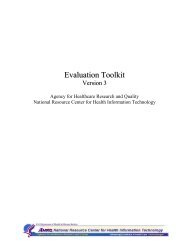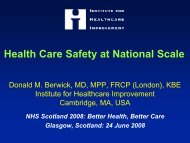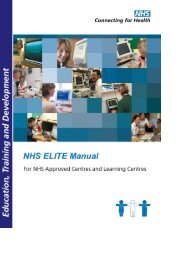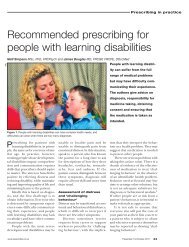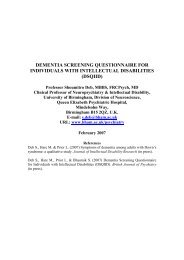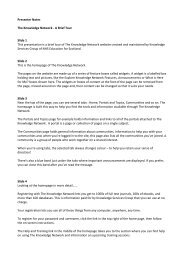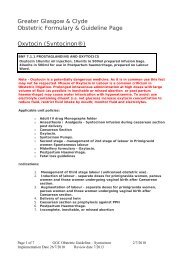The Fife Dementia Strategy: 2010 â 2020 - The Knowledge Network
The Fife Dementia Strategy: 2010 â 2020 - The Knowledge Network
The Fife Dementia Strategy: 2010 â 2020 - The Knowledge Network
You also want an ePaper? Increase the reach of your titles
YUMPU automatically turns print PDFs into web optimized ePapers that Google loves.
<strong>The</strong>re are few specialist intermediate care services for people with dementia<br />
operating in <strong>Fife</strong> (e.g. EAST, CAST, Old Age Psychiatry Liaison Service), and<br />
due to historical and financial barriers, access is geographically restricted and,<br />
unlike generalist intermediate care, they have not been subject to a<br />
comprehensive review. At the time of evaluation of generalist intermediate<br />
care services it was felt that this topic merited a dedicated piece of work on its<br />
own which has yet to be completed. Service providers feel that a lack of<br />
appropriate services available throughout <strong>Fife</strong> is likely contributing to<br />
inappropriate admissions into hospital, delays in discharge from hospital, and<br />
unnecessary moves into care homes.<br />
In order to develop a comprehensive understanding of current specialist<br />
intermediate care services in <strong>Fife</strong> for people with confusion/memory problems,<br />
and to identify gaps in services and modes for future development, a review is<br />
necessary. This review should include an evaluation of how/if these are<br />
accessed by people with confusion or memory problems such as those<br />
present in people with dementia, in an effort to differentiate rhetorical criteria<br />
from actual use.<br />
In the short term it is necessary to develop referral criteria for specialist<br />
intermediate care services which are explicit and clear in regards to access<br />
and referral pathways to alternate services which meet the needs of people<br />
with confusion or memory loss. This work will also be used to inform the<br />
development of the patient pathway described in section 4.2.1.<br />
In the longer term, the information collected during the review of specialist<br />
services will be used to identify and develop alternate models of care which<br />
will be accessible throughout <strong>Fife</strong>. Particular attention should be given to the<br />
role of intermediate care services in admission prevention which provides the<br />
greatest impact on quality of life 47 , and improving joint working between<br />
hospitals, intermediate care services and care at home providers.<br />
Central Assessment & Support Team<br />
CAST is a specialist mental health nursing assessment team and is part of<br />
the Mental Health Service for Older People. <strong>The</strong> team currently takes<br />
referrals from the Levenmouth area and a limited number of Kirkcaldy<br />
practices. It provides short-term, home-based assessment, treatment and<br />
support for patients over the age of 65 with mental health difficulties<br />
including dementia who have related problems of a complex nature and<br />
for younger patients with an established diagnosis of dementia.<br />
Assessment is carried out promptly and flexibly with visits planned<br />
according to the needs of the individual patient. <strong>The</strong> team works closely<br />
with catchment area psychiatrists and other members of the multidisciplinary<br />
mental health team. Support is transferred as soon as<br />
possible to longer term care providers.<br />
47 Scottish Executive (2005) Better Outcomes for Older People: Framework for Joint Services<br />
http://www.scotland.gov.uk/Resource/Doc/1095/0013875.pdf<br />
61




